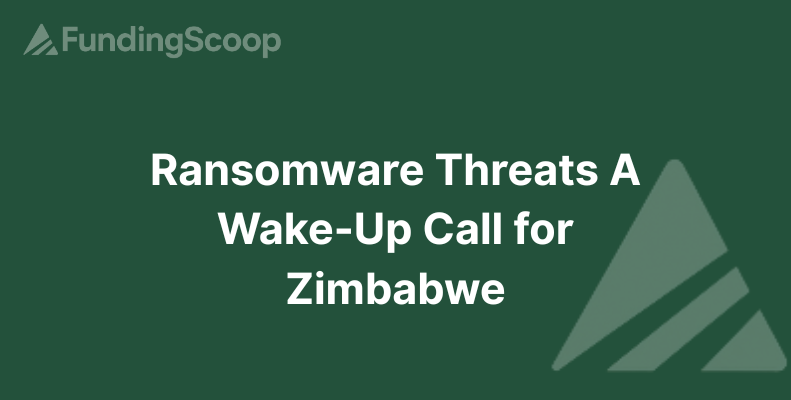
Ransomware Threats A Wake-Up Call for Zimbabwe
Jonathan Pike
Ransomware poses a critical threat to Zimbabwe's financial sector, heavily reliant on digital technology, making it a target for cybercriminals. With most of the population dependent on mobile money, attacks could severely disrupt economic activities. Financial institutions must enhance cybersecurity through strategies like regular audits, employee training, and advanced encryption. Proactive action is crucial for protecting digital assets and fostering trust. Implementing innovative solutions and staying ahead in cybersecurity is vital for maintaining economic stability and competitiveness.
Ransomware is a digital threat Zimbabwe cannot afford to ignore. As the nation's financial services sector, including mobile money platforms and banks, increasingly relies on digital technology, it becomes a prime target for cybercriminals. This malicious software encrypts files, rendering them inaccessible until a ransom is paid, potentially causing severe economic impacts.
Financial institutions in Zimbabwe have become an attractive target due to their pivotal role in daily transactions. The frequent attacks underscore the urgent need for robust cybersecurity measures. According to the National Cyber Security Centre, enhancing cyber resilience is critical to protecting digital assets. Reports indicate that cybercriminals are exploiting vulnerabilities in digital systems with increasing sophistication.
The Scale of the Threat
The scale of ransomware attacks globally is staggering, but its impact on emerging economies like Zimbabwe is particularly concerning. With a majority of the population dependent on mobile money for transactions, any disruption could hinder economic activities significantly. It's a scenario that Zimbabwe's financial services cannot afford, as highlighted in a recent report by the Cyber Security Toolkit for Boards.
Fortifying Cybersecurity Measures
To combat these threats, institutions must adopt comprehensive cybersecurity strategies. This includes regular security audits, employee training, and installing advanced encryption methods. The National Cyber Security Centre provides guidelines that are instrumental in formulating such strategies. Adhering to these practices can substantially mitigate the risks.
My Take
Ransomware presents a clear and present danger that requires immediate action. Financial leaders and policymakers in Zimbabwe must recognize the potential damage and act decisively to protect against these threats. Going forward, I anticipate that the regions adopting these cybersecurity measures will not only shield themselves from financial loss but will also see enhanced trust in their digital infrastructure.
Furthermore, innovative solutions such as blockchain may offer new ways to secure transactions and data integrity. As business technology evolves, staying two steps ahead is crucial in maintaining competitiveness and security.


